CHICAGO – In anticipation of the scariest week of the year, HollywoodChicago.com launches its 2024 Movie Gifts series, which will suggest DVDs and collections for holiday giving.
Interview: ‘Young Adult’ Director Jason Reitman on Open-Ended, Non-Message Directing
CHICAGO – Instead of trying to fill giant shoes in the shadows of his legendary filmmaker father Ivan Reitman (“Ghostbusters”), Jason Reitman has been successfully blazing his own path of films without message that are designed to incite your thoughts and question your actions.
Following the Golden Globe-nominated “Thank You For Smoking,” Oscar-winning “Juno” (with writer Diablo Cody) and Oscar-nominated “Up in the Air,” Reitman’s second collab with Cody switches to the journey of a “Young Adult” who seemingly learns to change her wicked ways but fails to.
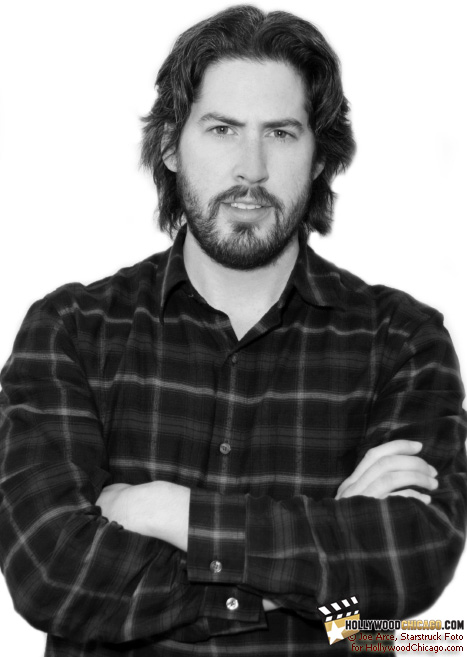
Jason Reitman defiantly poses for the HollywoodChicago.com lens on on Dec. 7, 2011 for “Young Adult”.
Photo credit: Joe Arce of Starstruck Foto for HollywoodChicago.com
That, Jason Reitman says, is reality more often than not. He says people typically don’t make drastic improvements with themselves unless, for example, it’s part of a 12-step program. “Young Adult” stars Charlize Theron, Patrick Wilson, Patton Oswalt, Elizabeth Reaser, Collette Wolfe, Jill Eikenberry and Richard Bekins from director Jason Reitman and writer Diablo Cody.
Jason Reitman sat down with HollywoodChicago.com this month to discuss the “magic trick” in his latest film and how it flips you from start to end. In truth, it’s not a romance film about Charlize Theron as Mavis and Patrick Wilson as Buddy (a married man with kids) like it seems on the surface. Rather, it’s about Mavis and Patton Oswalt’s crippled character, Matt, who befriends her through her own dark process of immaturely failing to grow up.
HollywoodChicago.com: Have you missed Diablo Cody (since “Juno”)?
Jason Reitman: No. I see her a fair amount in between films.
HC: When do you bring Diablo in as a writer as opposed to when you write scripts (like “Up in the Air”) for yourself?
JR: I don’t bring her in. She sends scripts to me when she writes them. She comes to me. She writes a lot.
HC: “Young Adult” is very different than Diablo’s body of work so far. She’s the queen of the young and the trendy vernacular. You can typically clearly identify Diablo through the words of her characters. This film, though, feels like her growing up.
JR: I think that was a perception that was based on a few of her characters. If you look at “Juno,” the adults – Jennifer Garner, J.K. Simmons, Jason Bateman and Allison Janney – are all really well written. Because of Juno (Ellen Page) and Leah (Olivia Thirlby) in “Juno” and Jennifer (Megan Fox) in “Jennifer’s Body,” people developed a perception that that was Diablo’s voice when she just wrote teenagers a very specific way.
Her adults have always been very strong, too. Diablo’s voice has always been identified by characters who make very unusual decisions you wouldn’t expect. They unflinchingly approach darkness.
People forget that 20 minutes before the end of “Juno,” Juno goes down to Mark’s (Jason Bateman) basement. This adult potential father of her unborn child literally takes a pass at her – a 16-year-old girl – in his basement. It’s just as dark as the love scene between Mavis (Charlize Theron) and Matt (Patton Oswalt) in “Young Adult”.
Maybe I just see her differently and have a unique perspective on her, but that’s certainly why I’m interested in her. Yes, Diablo grew up in “Young Adult,” but I don’t agree in how she did.
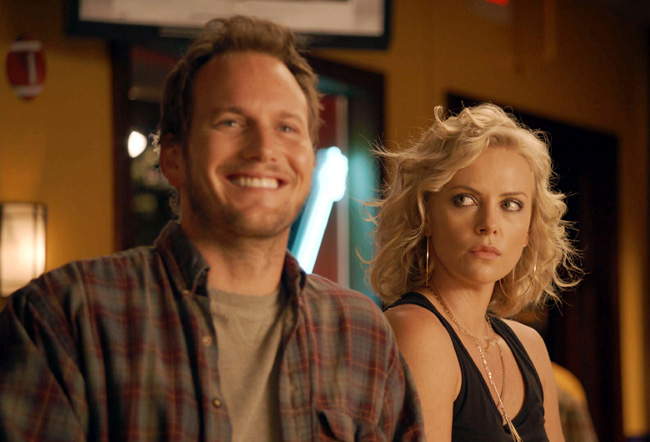
Image credit: Paramount Pictures
HC: That love scene was designed to make you uncomfortable.
JR: “Young Adult” was designed to lead you to three scenes. It’s a magic trick. You think you’re watching one kind of movie, and all of a sudden in the last three scenes, we flip you. Mavis has a meltdown on a lawn, that love scene and most important a breakfast-table scene with Sandra (Collette Wolfe) where you expect her to make a change and she doesn’t.
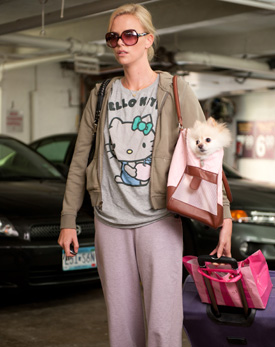 Photo credit: Phillip V. Caruso |
HC: So you’re a non-message, open-mind kind of filmmaker?
JR: Yes. I don’t believe in message. I believe every person should come away with something different. If everyone comes away with the same thing, I’ve failed.
HC: So you’re not telling them what to think?
JR: Never.
HC: You’re leaving people with: “What do you think?”
JR: Yes – or just think. Think something at all.
HC: Mavis is an interesting character because she doesn’t resolve something she very much needs to.
JR: She learns something, but she doesn’t change. That happens in life often. It almost never happens that people make 180-degree changes in life. The only people I know who make huge changes in their lives are the people who go through 12-step programs where it’s very hard work and you have to make a change.
They go through extraordinary work to do so and on a daily basis they commit to that change. People can grow up a little bit, but they don’t make those 180-degree changes and suddenly they’re a great person, bad, selfish or selfless.
In the movie “Grand Canyon” from Lawrence Kasdan with Kevin Kline, Steve Martin is basically playing the movie producer Joel Silver. He’s an asshole through the first half of the film. He gets robbed at gun point and shot for his watch. There’s a day when he friends see him in the hospital and he says he needs to stop making the movies he’s making and glorifying violence.
He says he needs to change, but at the end of the movie only a few months later, he’s on a mixing stage for a blood-and-guts movie. His friends say they thought he wouldn’t be doing that any more, but he says earlier was crazy hospital talk. He says: “Move the brains on the window five frames earlier!” That situation is true with people. That’s why I did this movie.
“Young Adult” is about a woman who does and says unthinkable things. She seems to learn something, and at the moment when we think she’s going to change, a character we don’t even know convinces her not to. And she says: “Thank you!” Her response is: “Thank you.”

Image credit: Phillip V. Caruso
HC: Lots of people think dark things – like pursuing a married person – but they often don’t have the balls to do it even if they want to.
JR: I hopefully don’t paint anyone as bad or good. I don’t believe people are good or evil. I believe people are complicated and they do things for all kinds of reasons. Some actions have more harm than others, but it’s purposeless to label people as bad or good.
HC: Charlize’s character and her friendship with Patton’s character is surprising. I didn’t believe a girl like that – even out of desperation or vulnerability – would go for that guy.
JR: That’s interesting. The first time I saw them together, they had a remarkable chemistry. Why aren’t these people together? You’re right: There is the initial instinct that there’s no way they’d be together. Particularly because their characters never talked in high school and you’d think that’d carry on through adulthood. But they should be together.
I didn’t initially realize this. I wasn’t a smart enough reader to see this on the page. I had to see it in person with Charlize and Patton doing a table read while sitting across each other. Then I realized this is a romance about two people who should be together but won’t and how sad that idea is. The moment you realize they should be together is the same moment you realize they can’t. That time she leaves in the morning is the last time they’ll see each other.
HC: So society tells them they shouldn’t be together?
JR: She’s unwilling to open her heart to anyone. Not just him. At the beginning of the film, we see Mavis with a good-looking guy who does altruistic things. He’s the perfect guy to bring home to mom. She wakes up next to him and looks like she’s suffocating in bed with him.
Then later in the film with Patton, we see a parallel image of the exact same shot – straight down with the arm across her – and you think now she’s found the right guy. But it doesn’t matter. She can’t open her heart to anyone.
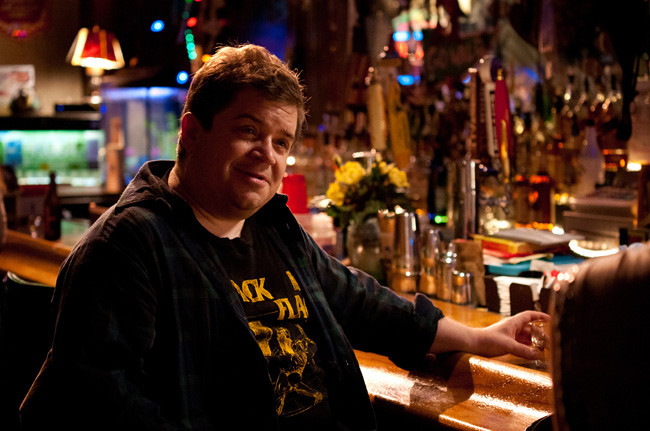
Image credit: Phillip V. Caruso
HC: Do you relate to any character in this film?
JR: I relate to Mavis and Matt. I don’t relate to Beth (Elizabeth Reaser) and Buddy. Mavis and Matt are darker and more complicated and have issues. I relate to that more.
HC: Was Josh Brolin going to be attached to this film?
JR: I don’t know where that rumor started. That was bullshit. You know where that came from? Josh Brolin is in “Labor Day” – my next movie (due out in 2013) – with Kate Winslet. So, people thought he must be Buddy in “Young Adult” instead of Patton Oswalt, but no.
HC: Why Charlize Theron as Mavis?
JR: I met her and just got a vibe. I knew how fearless she was by the role she had already taken. When I met her, she told me a dirty joke and I realized she had a great sense of humor.
HC: So, Charlize in “Monster”…?
JR: “Monster” is a brilliant performance for her, but it looked outward. I needed her to look inward. That’s scarier. When she looks at the screen and sees her performance in “Monster,” she’s not even looking at herself. In “Young Adult,” she sees Charlize. In a role like that in “Young Adult,” normally an actor has a way of apologizing from within the performance.
Normally they have a tick, an accent or there’s something with their wardrobe to let you know they’re acting. They do something to let you know: “I’m acting right now! Just so you know, this is a performance!” In “Young Adult,” she plays it 100 percent legit. No acting. No bullshit. Mavis isn’t like the real Charlize – because she’s totally different as a person – but she made Mavis a human being through and through without any character elements to let you know it’s a performance.
Normally an actor does something that’s performance-y. They’d do something weird with their hair. Loud clothing. There’d be a saying. Usually they do something inhuman to let you know this is something nowhere close to me so you know it’s a performance. What makes the movie uncomfortable is that it’s real. It’s her unwillingness to give you any way out or be too theatrical.
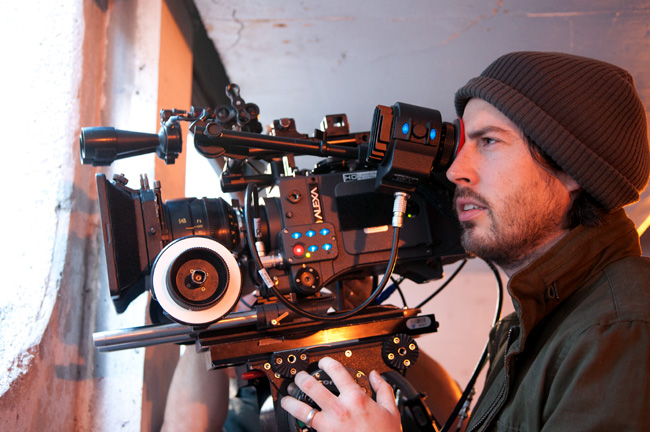
Image credit: Phillip V. Caruso
HC: What were your toughest scenes to film?
JR: The sex scene. It’s just uncomfortable. You’ve got two people with their clothes off. Patton’s got to find a way to climb on top of her with one working leg. Figuring that shit out… Eh.
HC: I’m glad we didn’t see much else there. I was good with what we got.
JR: Really? I’ve had people ask me for the opposite. They wanted to see the right turn happen.
HC: Another tough scene?
JR: Singing. Getting Charlize to sing in a car. She’s the most fearless actress I’ve ever met, but getting her to sing in a car… Do you like singing?
HC: I can’t, so I don’t try.
JR: That’s my point. You have to sing to the song, but they can’t play it in the car. They need the audio clean. So you put a thing in her ear and the car is packed with people shooting her.
RELATED CONTENT Read our “Young Adult” review. Read our “Young Adult” review. |
HC: Did you have a scene with a breakthrough on camera?
JR: There was a moment with Patton in the woods by the school when he’s pissed at Mavis. It’s where he got beaten up in high school. He did a take that was big. I talked to him about the power of throwing it away. The words were heavy enough.
He tried it and it just clicked. He suddenly got how little he had to do to make that work. The smaller he went, the more truthful and painful it got. He became emotionally involved. It became honest for him as an actor. That was a cool experience to work with someone who has mostly stand-up comedy experience, and as an actor, he’s doing a scene he’s never done before and it gets to a very interesting place.
 | By ADAM FENDELMAN |


